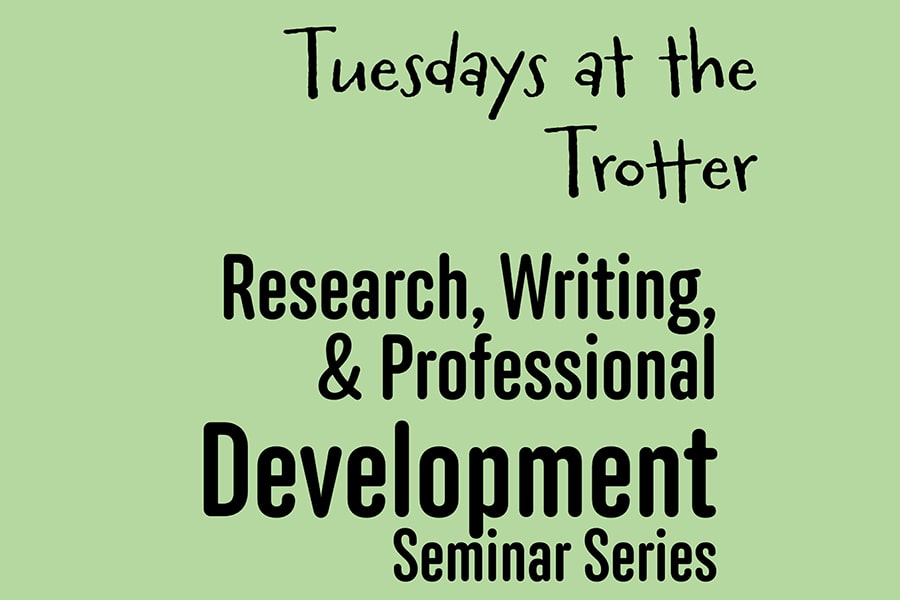- Home
- William Monroe Trotter Institute
The Study of Black Culture
As a center that supports the mission of social justice for Black communities, the William Monroe Trotter Institute condemns the tragic killings of George Floyd, Breonna Taylor, and others affected by police and racial violence. The Institute emphasizes the need to confront local police brutality cases that are often overlooked. We advocate for new approaches to combat such issues, including defunding police, reallocating funds to communities of color, mandatory anti-racism training, and federal action against police brutality and racial profiling.
Connect With Trotter
Looking for ways to get involved? Check out the Tuesdays at the Trotter event series and listen to the Black in Boston and Beyond podcast, hosted by our own Dr. Williams.
Explore the William Monroe Trotter Institute
About Us
The William Monroe Trotter Institute for the Study of Black Culture aims to serve as an intellectual hub to support the mission of social justice for Black communities.
The Institute takes its name from early twentieth-century African-American activist William Monroe Trotter, whose political advocacy, radical journalism, and Black internationalism placed Black Diasporic communities across the United States, the Caribbean, and Africa in critical conversation.
- Mission: To address the concerns of Black communities in Boston and Massachusetts through critical research, public advocacy, and community engagement.
- Vision: To be a thriving intellectual hub that supports the mission of social justice for Boston’s Black Diasporas via digital humanities, innovative research, and local and global collaborations.
What We Do
Build a Digital Footprint of Black Boston
- Through social advocacy, digital humanities, and community engagement, Trotter seeks to document and archive Black Boston’s complex political, cultural, and socio-economic experiences. This includes research-driven explorations of the intersections between race, community development, health, education, gender, diasporas, and environmental justice. Plus, our publications aim to inform the public about the challenges and opportunities facing Black Boston. These include our policy brief series, Resilience, and our longstanding journal, The Trotter Review.
Mapping Black Boston’s Experiences
- Trotter is mapping the experiences of Black Boston in its wonderfully diverse African-American, African, Caribbean, Afro-Latinx, Afro-Asian, and Pacific Islander populations. These Black communities are significant stakeholders in the cultural, economic, and political fabric of Boston and Massachusetts.
Follow Us On Social Media
- Trotter YouTube
- Trotter Facebook
- Trotter X (formerly Twitter)
William Monroe Trotter Institute for the Study of Black Culture
Healey Library, 10th Floor, Suite 12
100 Morrissey Blvd.
Boston, MA 02125-3393
Phone: 617.287.5879
Fax: 617.287.5865

